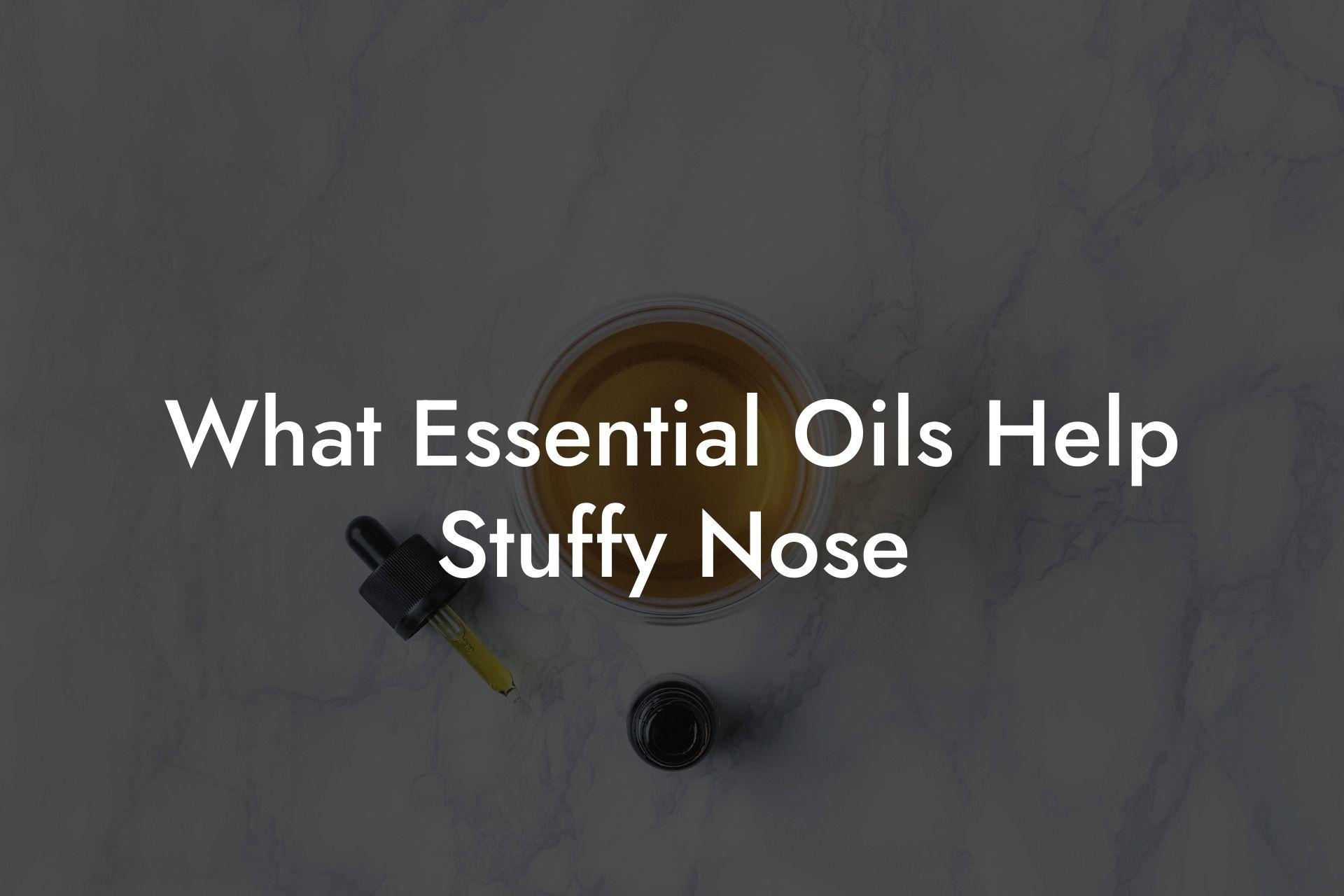A stuffy nose can be a frustrating, uncomfortable experience that affects your daily life in various ways. Whether it’s disrupting your sleep or making it a struggle to breathe throughout the day, finding relief from sinus congestion is essential for regaining your comfort and wellbeing. One natural remedy that has gained popularity in recent years is the use of essential oils for stuffy nose relief. In this in-depth guide, we will explore the best essential oils for clearing your nasal passages, how to use them effectively, and the science behind their powerful decongestant properties.
Table of Contents
1. Eucalyptus Oil
Eucalyptus oil is known for its potent anti-inflammatory, analgesic, and decongestant properties, primarily due to the active compound called eucalyptol. This powerful oil helps in reducing sinus congestion by opening up the nasal passages and providing a soothing effect on inflamed mucus membranes. Its antimicrobial action also aids in eliminating harmful pathogens responsible for sinus infections.
2. Peppermint Oil
Peppermint oil is another popular choice for relieving a stuffy nose, as it contains menthol. This natural compound provides a cooling sensation that helps decongest the nasal passages, easing discomfort and promoting easier breathing. It also has anti-inflammatory and antibacterial properties, which can reduce inflammation and infection in the sinuses.
3. Tea Tree Oil
Tea tree oil is widely used for its powerful antimicrobial, antiviral, and anti-inflammatory properties, making it a great addition to your arsenal against sinus congestion. It can help to reduce the inflammation of mucus membranes, thereby opening up the nasal passages. Additionally, its ability to combat infections may be useful in treating the underlying cause of your stuffy nose.
4. Lavender Oil
Lavender oil offers a calming, soothing effect on the body, and its anti-inflammatory properties can help reduce sinus inflammation. While it is not a direct decongestant like eucalyptus or peppermint oil, it can bring relief by easing anxiety and promoting relaxation, which may indirectly benefit those suffering from sinus congestion.
5. Lemon Oil
Lemon oil is a natural decongestant with antiviral and antibacterial properties. It can help to boost the immune system, improve circulation, and thin mucus, making it easier to breathe when you have a stuffy nose. Plus, its uplifting and invigorating scent provides an additional boost to your mood, which can be beneficial during times of discomfort.
How to Use Essential Oils for Stuffy Nose Relief
- Steam Inhalation: Add a few drops of your chosen essential oil to a bowl of hot water, cover your head with a towel, and gently inhale the steam for 5-10 minutes. Be careful not to burn yourself with the hot water or steam.
- Diffuser: Use an essential oil diffuser to disperse the healing properties of your chosen oil throughout the room, providing relief and promoting a soothing environment for you to heal in.
- Topical Application: Dilute your essential oil with a carrier oil (such as almond, coconut, or jojoba oil) and gently massage onto your chest, temples, and the bridge of your nose.
- Direct Inhalation: Simply inhale the aroma of your chosen essential oil straight from the bottle or add a few drops to a cotton ball and inhale as needed.
What Essential Oils Help Stuffy Nose Example:
Imagine you are struggling with a stuffy nose, making it difficult for you to focus at work or even sleep at night. You decide to try essential oils for relief. After conducting some research, you determine that eucalyptus oil may be the best option for you. You add a few drops of the oil to a bowl of hot water and practice steam inhalation before bed. Within a few minutes of inhaling the steam, you begin to feel the congestion in your nasal passages dissipating, and you are able to breathe more comfortably. Over the course of a few days, you continue to use eucalyptus oil in your nightly routine, and your stuffy nose begins to clear up entirely.
Dealing with a stuffy nose can be a challenging and frustrating experience, but essential oils offer a natural, effective way to find relief and overcome the discomfort. By understanding the properties of different essential oils and using them appropriately, you can find the perfect remedy for your specific needs and improve your overall wellbeing. If you found this guide helpful, please feel free to share it with others who may benefit from it, explore our other articles on essential oils & aromacology at the Oshu Oils blog, and discover the Oshu Oils range of essential oils to enhance your health and wellness journey.





















